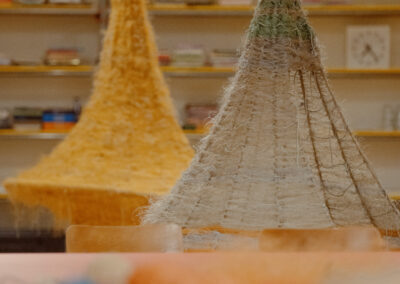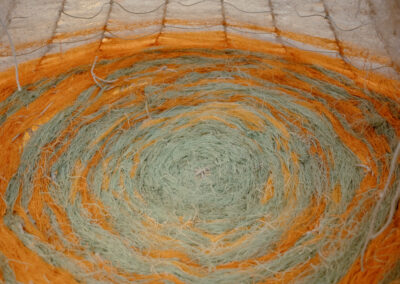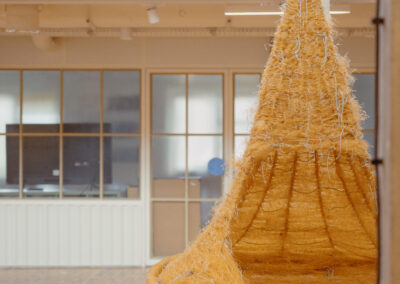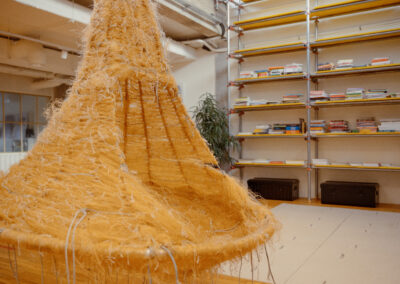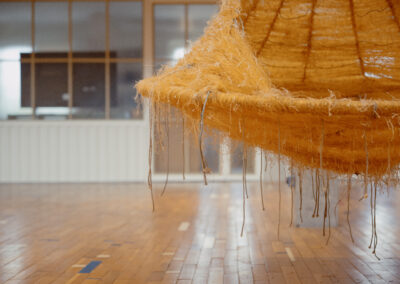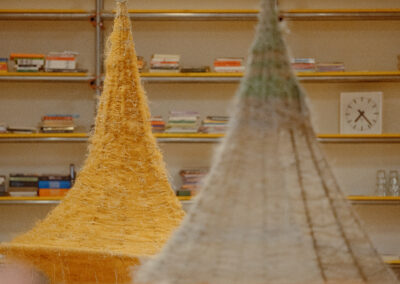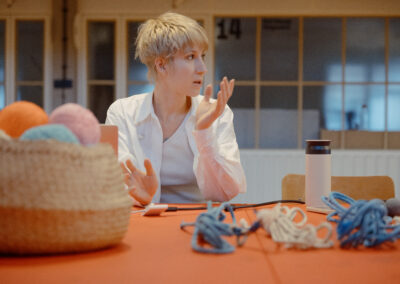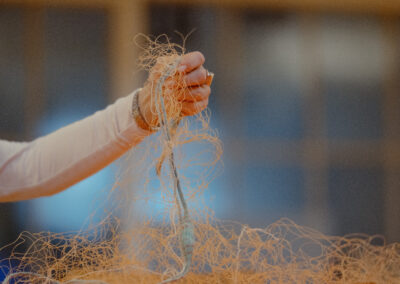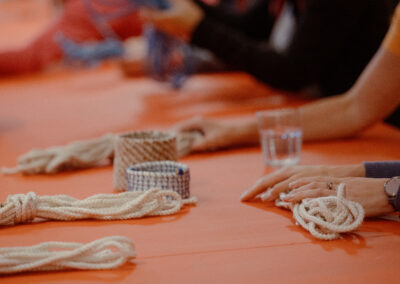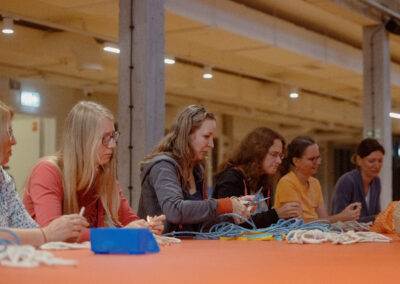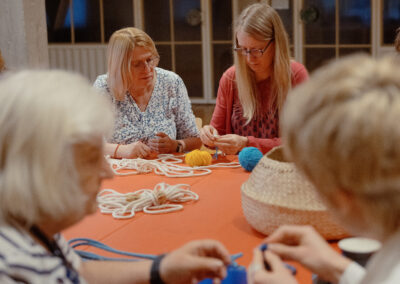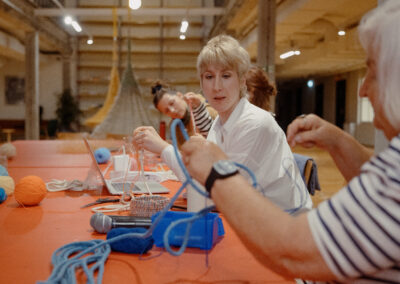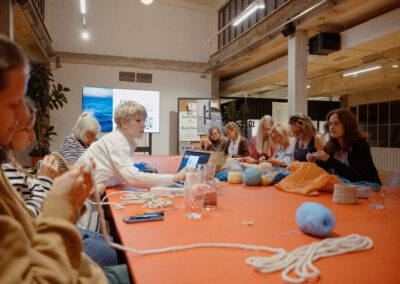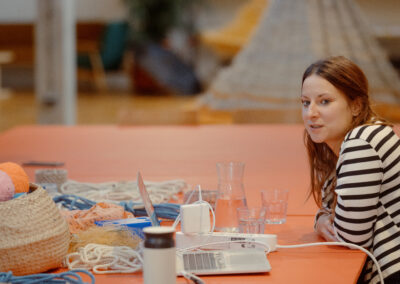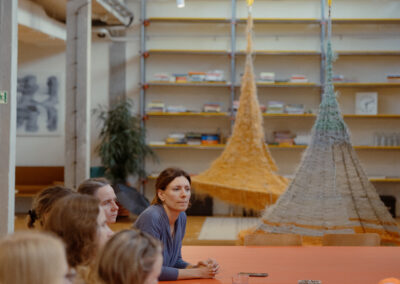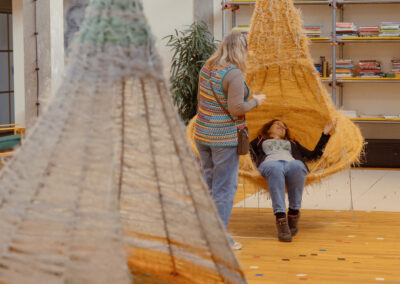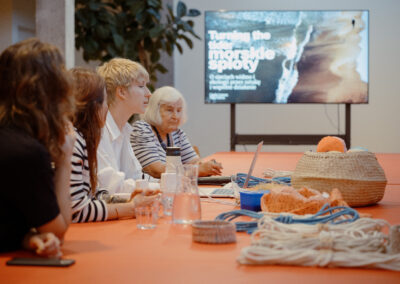Linda Lemon
Artist in Residence
Linda Lemon is a visual artist whose interdisciplinary practice weaves together critical reflection and craft. Through sculptural installations and ceramics, she explores the fluid connections between the human body, natural cycles, and posthumanist philosophies. Her work grows out of a deep reverence for the Earth’s fragile systems -water, soil, compost- and the rhythms of life that transcend species and epochs.
Drawing from hydrofeminism, contemporary mysticism, and material culture, she creates tactile, symbol-laden objects that speak of care, closeness, and sensitivity. Her pieces are often intentionally infused with positive emotional charge, even when addressing complex and unsolvable problems of the anthropocentric world.
Linda holds a degree in Intermedia from the Academy of Fine Arts in Gdańsk and a degree in Art Education from the Academy of Fine Arts in Łódź. She has participated in numerous exhibitions and shows, including:
- Flow/Przepływ, Galeria EL, Elbląg (2024)
- Sister Earth, Arsenał Municipal Gallery, Poznań (2021)
- The Last Scene, STUDIO Theatre Gallery, Warsaw (2021)
“Sea Weavings”, (2025)
Made from reused fishing nets and marine ropes
As part of the Turning The Tide art residency organized by the Institute of Urban Culture in Gdańsk, Linda Lemon developed a project addressing the issue of ghost nets and sustainable fishing in the Baltic Sea. The residency culminated in an event titled “Sea Weaves”, presented at Grid Arthub, where the artist showcased two swings made from abandoned and damaged fishing nets, creating a temporary relaxation zone open to the public.
The idea for the swings stemmed from a desire to support the protection of the Baltic Sea in an encouraging and joyful way, rather than through fear-based narratives of climate catastrophe. In her artistic practice, Linda Lemon focused on hope, delight, and shared experiences, even when dealing with complex topics related to the anthropocentric world.
The event also included weaving workshops, during which participants created functional baskets from recovered fishing nets and reused yarns. Inspired by
traditional craftsmanship, the resulting objects demonstrated how waste materials can be transformed into something valuable, durable, and aesthetically pleasing.
The educational aspect was led by Olga Sarna from the Mare Foundation, who spoke about the scale of the ghost net problem and the challenges of protecting the Baltic Sea. The entire project aimed to deepen ecological awareness while offering a positive and engaging way to respond to marine environmental issues.


